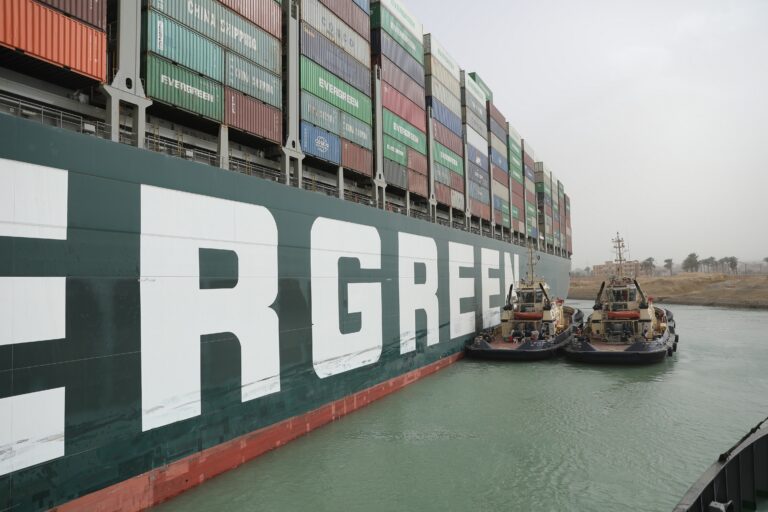Request
×
Write to us
×
Request call
×

Call:
+7 495 780 58 18
+7 812 448 31 00
+7 812 448 31 00
+7 (812) 448 31 00
+7 8617 676 239
+79270122325
News
02.04.2021

No Fault – No Liability: TT Club and UK P&I on the insurance aspects of the "Ever Given" incident»Evergreen Corporation and the ship "Ever Given" itself, as well as most of the 20 thousand containers on board, are insured in our group of mutual insurance clubs TT Club and UK P & I.
The losses resulting from this incident can be divided into three categories. The first ones are purely media ones. These are the same losses of world trade, which for a week did not count goods for 70 billion US dollars and, according to some estimates, lost 1.4% of annual growth.
Then there are the actual losses of the companies due to the week-long downtime of the channel and 420 ships in both directions, as well as further disruptions in the supply chain. These include: lost profits of merchants due to delays in the delivery of goods, damage to goods due to delays, loss of freight by shipowners and charterers, refusals of cargo recipients, demurrage of equipment and increased logistics costs, losses of the Suez Canal administration, the cost of removing the ship from the shoal, damage to the ship itself, the canal infrastructure, and the environment. And these losses in total can reach from half a billion to several billion dollars.
Now about insurance. The most important thing is that no delivery time is guaranteed, and the losses caused by the delay (especially, "only" a week) are not compensated by sea carriers, and, consequently, by their insurers. Even about the return of freight under the terms of the bills of lading, it makes no sense to talk when the delay is not caused by the fault of the carrier and is insignificant taking into account the transit period.
Declaring "special interest" in delivery times for an additional fee, as well as loss insurance in case of delay – is not even exclusive: there is practically no such thing in our practice. Damage caused to the cargo solely as a result of the delay in its delivery is excluded in the cargo insurance policies. Some shipowners and charterers insure the loss of freight in case of delays of the vessel, including its blocking, but such policies are very rarely purchased.
In theory, you can try to recover all this from your direct counterparty-the carrier or the charterer, and then-from the culprit in the order of recourse. But, most likely, this idea will die at the stage of "no guilt – no responsibility".
The channel's own revenue losses are not so small – they are about $ 100 million, and most likely they are insured.
The most interesting aspect is the cost of rescuing a stranded ship. Being, among other things, insurers of a large number of freight forwarders, including those already involved in this situation, we see the greatest risk in the event of a General Accident, the contributions for which are distributed among all participants of the maritime enterprise in proportion to the value of the salvaged property: the ship, cargo, containers, etc. Despite the coverage of this risk by the classic cargo insurance policy, such a step causes a chain reaction of claims against freight forwarders due to delay in delivery and even loss of cargo.
Understanding how much of the cargo is actually insured by cargo owners, the losses of insurers in a bad scenario can be estimated at another 50 million US dollars. Thus, out of several billion dollars of losses, insurers in the most optimistic scenario will be able to cover 150-250 million US dollars. Moreover, any claims related to this incident will be considered for years, and the main beneficiaries in this situation will be lawyers.
Photo: Suez Canal Authority

